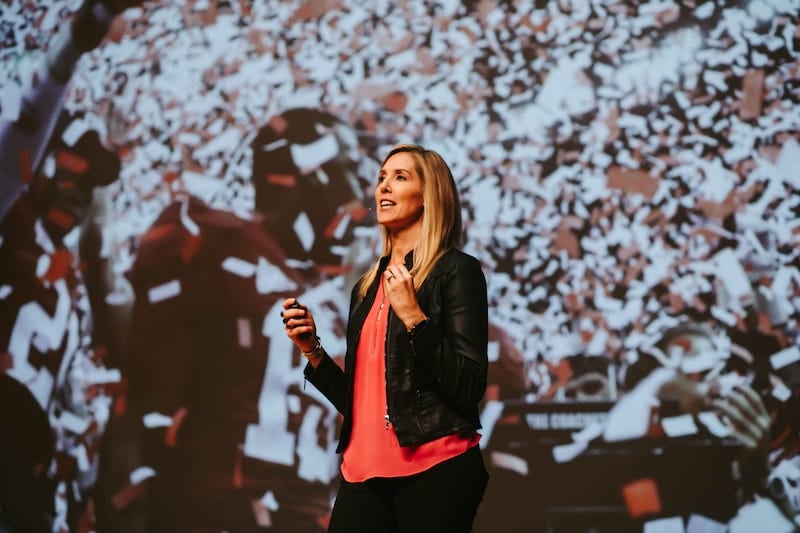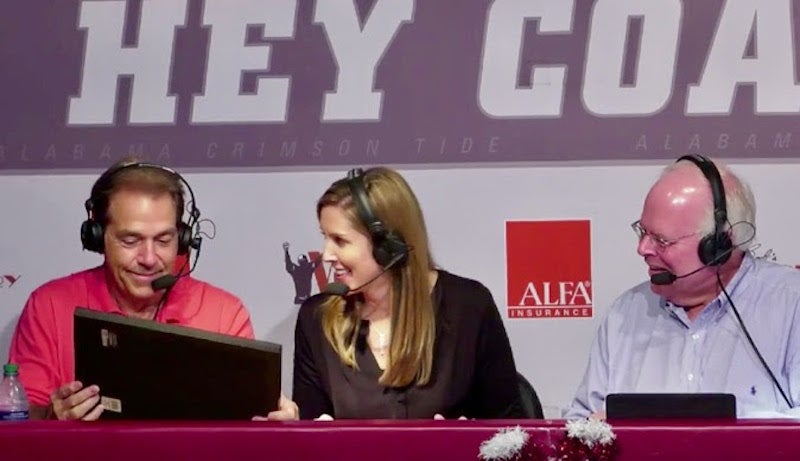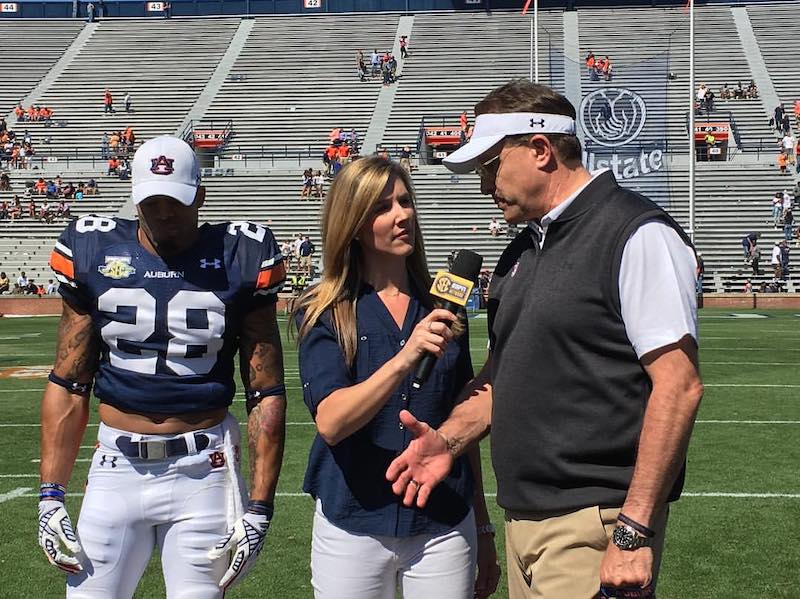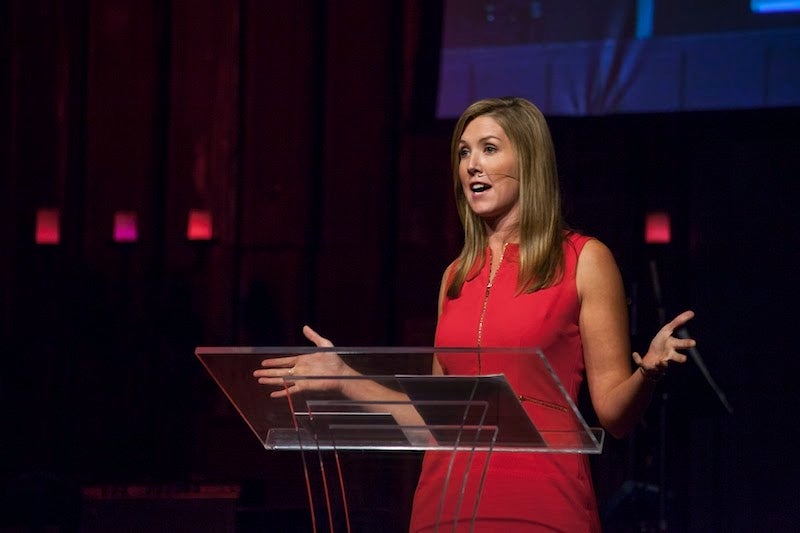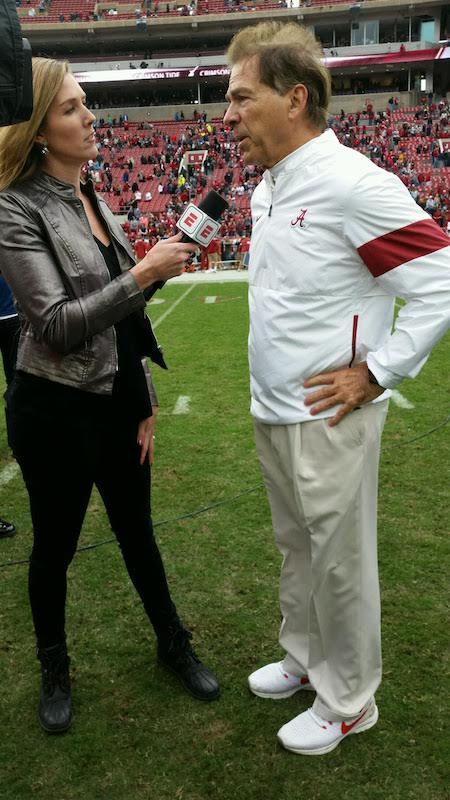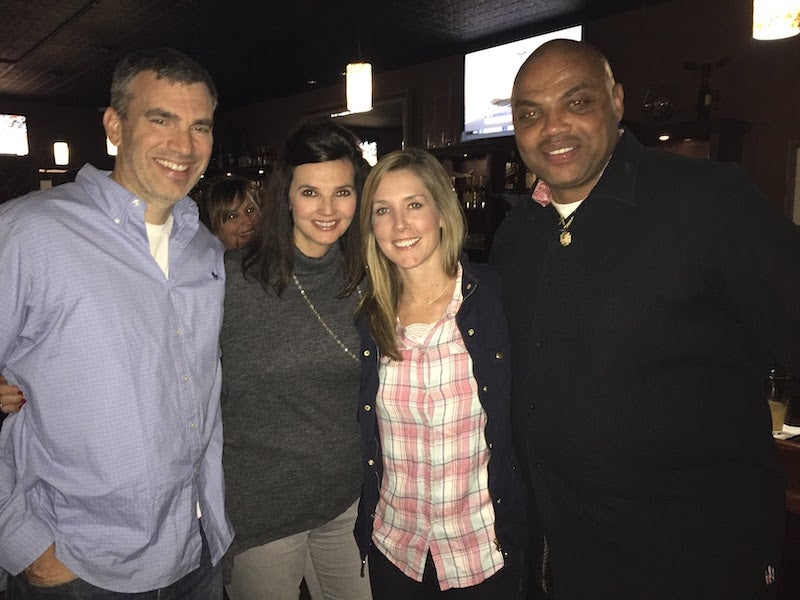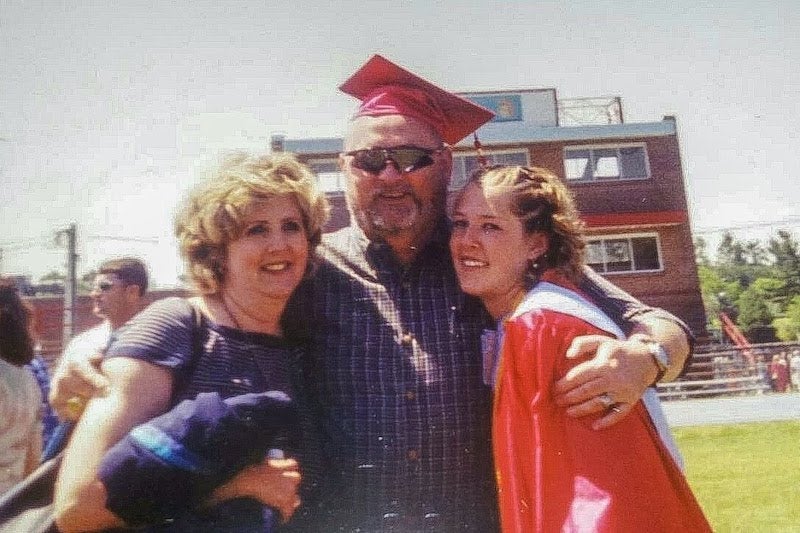Profile: Off the sideline with Sisler
Published 11:29 am Friday, March 17, 2023
|
Getting your Trinity Audio player ready...
|
By LAUREN SEXTON | Sports Reporter
In the worldwide arena of sports, Lauren Sisler is a major contributor. The two-time Emmy award-winning broadcaster is an ESPN and SEC sideline reporter that graces television sets across the country. Each week, millions of Americans welcome Sisler and her ESPN and SEC Network colleagues into their homes. Football season dominates her fall schedule, and the Birmingham-based reporter is busy traveling to campuses and stadiums, but telling the stories of these college athletes makes Sisler’s job worthwhile. It was being able to tell the stories of so many student-athletes that helped Sisler be able to tell her own.
“I’m an open book,” Sisler said. “It’s certainly becoming more and more apparent as life has gone on. With the circumstances with our parents, the more that I’ve come out and shared, the more that I’m just like a free spirit here.”
The former Rutgers gymnast grew up in the small town of Roanoke, Virginia, when she developed her love of sports from her close-knit family. She spent a lot of time with her family. Weekends were spent traveling to her games and her brother Allen’s games. Sisler was raised not only watching sports, but playing sports, and it was only a matter of time before she found herself on the path to becoming a sports reporter. These memories that Sisler looks upon fondly and cherishes are special to her even as she faced the dark time in her life and the loss of her beloved parents.
“They didn’t know they were in the throes of it, and then eventually it became a problem,” Sisler said about her parents’ battle. “[Concealing] it was something they did so well, because they did not want to burden other people or let other people into their world of addiction. Addiction carries such a stigma, and there’s a label attached to it. And I believe that people feel that shame because they look at addiction as if it is a choice. And it’s something that can be so shameful, because of its nature of it. I think that’s what they felt, and I felt it too like I inherited that shame.”
It was 2003 when Sinsler was in her first year at Rutgers as a student and member of the gymnastics team when she received a phone call from her father that she never thought she would get. She immediately rushed home.
Shortly after Sinsler’s flight arrived, she was informed of the death of her father. Just hours after receiving the call that her mother had since passed, she had to face the death of her father as well. This is a lot for a teenager to face in a matter of 24 hours. It was the help of her family and her team that had helped her through this time of horrible grief.
“I ran from reality because I did not want to acknowledge how my parents died,” Sisler said. “I could not use the words addiction or overdose in the same sentence, because I felt like my parents were the strongest people.”
A drug epidemic faced Virginia during the early 2000s and claimed countless victims. People like Sinsler’s parents sought out help from physicians to help with the pain they were experiencing. They were prescribed pills that were not intended to be addictive, however, they were. These pills were easily addictive and many people across the country have suffered from the same addiction or have died from it. Discussing the nature of her parents’ death was a struggle for Sisler, it was an obstacle she was not ready to overcome at a young age.
With the guidance of her aunt, her family, and her team, Sisler returned to Rutgers and continued her life as a student-athlete. However, she returned to school with a different career path in mind, sports journalism.
“We wanted her to become the person going forward that she would embrace and love,” Sisler’s Aunt Linda Rorrer said. “So, she ultimately decided to change her interests at school. She went on to switch to journalism with a focus on sports. She asked herself how she could achieve her dream to go to ESPN, and she set her sights on achieving it.
It was no surprise that Sisler turned her love of sports into a career path. Known by her family as being unapologetically herself her entire life, Sisler found herself working for different news organizations across the country until she found her home in Birmingham, Alabama.
It is easy to consider Birmingham or even the state of Alabama as one of the sports capitals of the country with nationally ranked high school teams and nationally ranked college teams, and Sisler loved to tell stories of the student-athletes in the Birmingham area. However, she wasn’t able to tell her own story, the story about her parents’ death.
After telling countless stories about overcoming obstacles, the now ESPN sideline reporter began to open up about her emotional scars stemming from the loss of her loved ones. It was the encouraging stories the student-athletes told her that finally gave her the ability to discuss her own tragedy.
“I came to the local CBS affiliate here in Birmingham…and was really excited about the opportunity,” Sisler said. “Truth be told, it was kind of this thought of ‘Wow I get to be a sports reporter.’ To me, it was an exciting job. I didn’t realize that when I transitioned into this career the impact it would have on my life, because it is my job as a sports reporter to find the truth and how athletes are shaped by their stories and by their circumstances. Yet I couldn’t own my own truth, because I was ashamed. I’m telling these stories, and the response that comes from the stories is that people are truly inspired and encouraged by these amazing stories. And that’s when the light kind of flipped on for me.”
Since opening up about an extremely difficult time in her life, Sisler was able to grow from her experience and began helping people struggling with prescription drug addictions and their loved ones who suffer alongside them.
“I’m proud of the circumstances that have shaped me into who I am today. And I attribute a lot of that to my parents, and to the people that were there for the first 18 years of my life. I also attribute it to my family and my friends that were there on the back end, and the people that have come into my life..in the absence of my parents…I’m just so grateful for that.”
Sisler has since gone on to partner with different kinds of coalitions and organizations that create awareness for addiction to prescription drugs. She has worked with national organizations like the American Addiction Center as well as local organizations within Shelby County and Birmingham.
“From an early age, a lot of those things were instilled in me and helped me to build some of the resilience that was needed for me to walk through those tragic circumstances. And now, it’s so rewarding to get to be on this side of it, [to help others] walk through difficult circumstances and
come out on the other side. It’s amazing to see things come full circle and to have perspective. It’s such a gift.
Not too long after telling her own story, Sisler went from being a cable sports reporter to one of the sideline reporters for both ESPN and the SEC Network. She continues to work on and off the screen, Sisler covers college football in the fall and college gymnastics in the winter. Her career has allowed her to work and interview legends like Charles Barkley and Nick Saban. More specifically she was one of the producers for the episode “One-on-One” with the two legends in 2016 at the Coleman Coliseum in Tuscaloosa.
2023 will mark Lauren Sisler’s seventh year with ESPN and the SEC. She continues to dance on the sideline and interview legendary coaches as well as future NFL stars. She continues to discuss the harsh truths about prescription addictions that affect so many Americans. Tragedy is not something that Sisler has let define her.
“Life is a process,” Sisler said. “Healing takes time, and it’s always part of the journey. It’s been 19 years since my parents passed, and I’m always finding myself healing from the tragedy and loss. But using that to help other people and find positive ways to influence other people, that’s important for me. I think that as athletes we are essentially not trained, we’re kind of molded into who we are. The work ethic, that determination, and grit, comes from being an athlete. I just hope that I can use that gift to share with others so that they can have that same perspective and use their experiences to help other people.”


